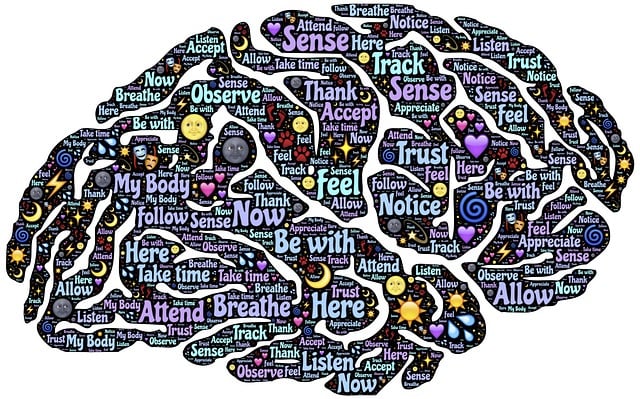Boulder Couples Counseling Therapy offers a transformative process for building resilience in relationships using the Relationship Functioning Matrix (RFM). This framework assesses three key dimensions: Loyalty, Commitment, and Mutual Respect. Through structured sessions, positive psychology practices, and self-awareness exercises, couples learn effective communication techniques, improve mental fortitude, and prevent emotional burnout. Integrating RFM into daily life fosters a growth-oriented mindset, enhances adaptability, and promotes overall well-being, ensuring partners can navigate challenges together as a resilient unit.
“Enhance your relationship’s resilience with RFM, a powerful framework that fosters adaptability and strength. This comprehensive guide explores the critical role of Boulder Couples Counseling Therapy in navigating challenging situations. Discover practical exercises designed to strengthen bonds and promote long-lasting resilience. Learn strategies to integrate these techniques into daily life, ensuring sustained resilience over time. Embrace the transformation and deepen your connection with effective RFM application.”
- Understanding RFM: A Framework for Relationship Resilience
- The Role of Boulder Couples Counseling Therapy in Building Resilience
- Practical Exercises to Enhance Relationship Resilience
- Integrating RFM into Everyday Life: Sustaining Resilience Over Time
Understanding RFM: A Framework for Relationship Resilience

Resilience is a crucial factor in maintaining healthy relationships, and that’s where RFM—a powerful framework for relationship resilience—comes into play. Short for Relationship Functioning Matrix, RFM offers a structured approach to understanding and enhancing connection dynamics between partners. This tool, often utilized by Boulder Couples Counseling Therapy professionals, provides insights into the ways couples interact, communicate, and support each other.
By assessing three key dimensions—Loyalty, Commitment, and Mutual Respect—RFM helps identify strengths and weaknesses in a relationship. Loyalty refers to trust and intimacy, commitment signifies shared responsibilities, and mutual respect involves understanding and consideration. Through this framework, couples can work on developing coping skills and improving their ability to navigate challenges together, effectively preventing depression and fostering healthier interactions, all of which contribute to building resilience as a couple.
The Role of Boulder Couples Counseling Therapy in Building Resilience

Boulder Couples Counseling Therapy plays a pivotal role in fostering resilience among partners. Through structured sessions, couples learn effective communication strategies that enhance understanding and empathy, which are crucial for navigating life’s challenges together. The therapy encourages active listening, open dialogue, and conflict resolution skills, enabling partners to support each other through stressful situations, emotional turbulences, or significant life changes.
Incorporating practices from positive psychology, Boulder Couples Counseling Therapy helps in cultivating positive thinking and self-esteem improvement. It equips couples with tools to build mental fortitude, adapt to change, and bounce back from setbacks. By addressing underlying issues that may contribute to burnout, the therapy prevents emotional exhaustion and promotes a healthier, more fulfilling relationship. This proactive approach not only strengthens the bond between partners but also prepares them to face future challenges as a resilient unit.
Practical Exercises to Enhance Relationship Resilience

Building resilience in relationships is a vital aspect of maintaining healthy connections, and Boulder Couples Counseling Therapy offers practical tools to achieve this. One effective method involves engaging in self-awareness exercises that foster open communication and understanding between partners. By encouraging active listening and honest expression of emotions, couples can strengthen their bond and navigate challenges with greater ease. These exercises often include setting aside dedicated time for deeper conversations, creating a safe space where both individuals feel heard and valued.
Additionally, therapists may guide partners through activities that promote empathy and compassion. This could involve role-playing scenarios to practice responding to conflicts constructively, or even simple gestures like expressing gratitude regularly. Such practices contribute to depression prevention by fostering positive interactions and emotional support within the relationship, ultimately enhancing overall mental health policy analysis and advocacy for stronger, more resilient partnerships.
Integrating RFM into Everyday Life: Sustaining Resilience Over Time

Integrating RFM (Resilience, Flexibility, and Mastery) into everyday life is crucial for sustaining resilience over time, as advocated by Boulder Couples Counseling Therapy professionals. This approach encourages individuals to cultivate a mindset that embraces challenges as opportunities for growth. By regularly practicing RFM, people can enhance their ability to navigate life’s complexities, much like a sturdy tree bends with the wind instead of breaking.
Boulder Couples Counseling Therapy, along with Healthcare Provider Cultural Competency Training and Mental Wellness Coaching Programs Development, emphasizes the importance of self-esteem improvement and mental wellness. Integrating RFM into daily routines allows individuals to develop resilience that transcends various life domains. Whether facing relationship issues, career challenges, or personal struggles, a resilient mindset enables people to adapt, bounce back, and thrive in the face of adversity, contributing to overall well-being and fulfillment.
Boulder Couples Counseling Therapy offers a powerful approach to building resilience through the RFM framework. By understanding relationship dynamics, couples can enhance their ability to navigate challenges. The practical exercises provided offer tools to strengthen connections and foster adaptability. Integrating these strategies into daily life ensures that the benefits of RFM counseling endure, allowing relationships to thrive even in the face of adversity.














